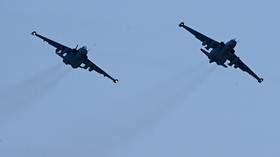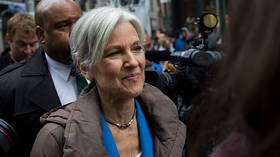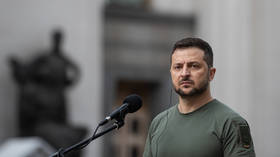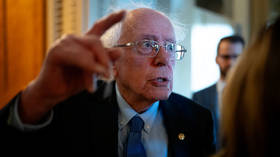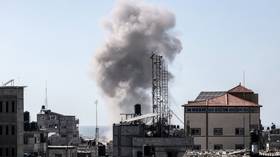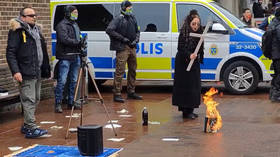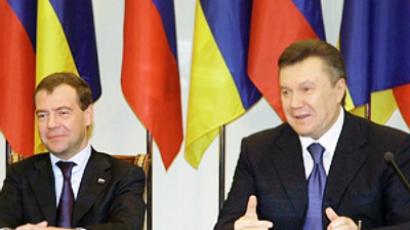Iran on a tight leash
After months of debate and talks, the UN Security Council and the EU are taking the first concrete steps in implementing the fourth round of sanctions against Iran in an effort to stall its disputed nuclear ambitions.
"This is not a resolution comprised of voluntary measures. There are many serious and binding measures in this resolution and we feel pleased with its content – it is strong, it is broad-based and it will have a significant impact on Iran, which is why Iran has worked so hard to try to prevent its adoption," Susan Rice, the US ambassador to the UN, said.
The new sanctions aim to curtail Iranian military capabilities by limiting missile investment, imposing a conventional arms ban, and targeting sanctions at new individuals and entities. The sanctions are targeted – they impose an asset freeze on 40 entities and one individual, and a travel ban on 36 new individuals allegedly involved in Iran's nuclear program.
US Secretary of State Hillary Clinton said the fourth set of sanctions to be imposed on Iran will be "the most significant sanctions that Iran has ever faced."
All five powers with a veto – the US, Britain, France, China and Russia – were among the 12 who voted in favor for the resolution, while Lebanon abstained and both Turkey and Brazil voted against it.
But, for the United States, the new UN sanctions are not enough. In addition to the Security Council’s list of institutions and individuals targeted with sanctions, dozens of other Iranian companies and senior Iranian officials were placed on a US financial blacklist as a first step to intensifying international pressure.
Those blacklisted include Iran's Postal Bank, Defense Minister Ahmad Vahidi, five front companies, 22 energy and insurance concerns, and the air force and missile command of the Revolutionary Guard Corps. The US sanctions prohibit any American business or individual from trading with those named on the blacklist and can also freeze any assets they may have under US jurisdiction.
"We will continue to target Iran's support for terrorist organizations, we will continue to focus on Iran's Revolutionary Guard, and we will continue to expose Iran's efforts to evade international sanctions," US Treasury Secretary Timothy Geithner said at a White House news briefing.
However, this is just the beginning of a long list of other sanctions other governments are planning to impose on Iran.
The European Union's proposed measures go further than the UN, targeting the oil and gas industry, as well as shipping and air cargo operators. They will also include restrictions on trade insurance and financial transactions. This set of sanctions will be particularly painful for Iran because countries such as Germany and Italy have become important trading partners.
"Unilateral sanctions undermine the joint work"
Russia has criticized the additional penalties adopted by the EU and the US.
“We are very disappointed that the US and the EU haven’t followed Russia’s call to abstain from imposing one-sided sanctions on Iran,” Deputy Foreign Minister Sergey Ryabkov said on Thursday.
He also stressed that sanctions “are not only destructive, but they also undermine the basis of the joint work with the partners from the Sextet and in the UN Security Council”.
While the US and the EU continue to push Iran into a corner through these sanctions, the Iranian government insists its nuclear program is for peaceful purposes and it will not bow down to international pressure.
In particular, Iran criticized EU plans to impose additional sanctions, calling them "wrong and illogical." Iranian Foreign Ministry spokesman, Ramin Mehmanparast, said that sanctions "will not resolve” Iran's row with the West over its nuclear program.
"The carrot-and-stick policy of the EU is wrong and illogical, because such measures will not resolve the [nuclear] issue," Mehmanparast said.
Meanwhile, in Tehran, Iranian President Mahmoud Ahmadinejad said in a televised speech that Tehran will not make “one iota of concessions” and will continue building four new nuclear research reactors. He also vowed to punish the West and admonished it to “sit down at the negotiating table like a polite child” before beginning talks.
In fact, Ahmadinejad is simply going to turn a cold shoulder. "The sanctions you pass should be thrown into the trash bin like a used tissue… They are not capable of harming the Iranian nation,” he said.
And Iran is not alone in its stance against the effectiveness of the sanctions slapped on it. The South-East Asian nation of Indonesia expressed regret over the new international sanctions.
“Indonesia regrets the fact that the situation developed in such a way that the Security Council deemed it necessary to impose additional sanctions on Iran,” Foreign Minister Marty Natalegawa told reporters. “Indonesia consistently believes that what must be emphasized is resolving the issue through dialogue and negotiations.”
President Luiz Inacio Lula da Silva of Brazil, a country that voted against the UN sanctions along with Turkey, also expressed his dismay. "Sadly, this time it was Iran who wanted to negotiate and those who didn't want to negotiate were those who think that force resolves everything. I think that taking this decision was a mistake,” he said. “I think the Security Council threw out a historic opportunity to negotiate calmly on Iran's nuclear program.”
The question now is, will tough words from Iranian officials and their supporters be enough to counter the sanctions that could leave the country economically isolated? US and European officials said they are succeeding in putting forth a united international front against Iran’s nuclear work.
"The Iranians didn't calculate that the Europeans would act so quickly,” the Wall Street Journal quotes a European diplomat working on the Iranian issue as saying. "Many of these actions will now be difficult to unwind.”
Russia to freeze S-300 deliveries, but co-operation won’t be halted
Moscow has confirmed on Thursday that the UN resolution affects the deal on the deliveries of Russian S-300 long range surface-to-air missile systems to the Islamic Republic.
"Our understanding is that the resolution bans deliveries of these missile systems to Iran," Deputy Foreign Minister Sergey Ryabkov told the media, Interfax reports.
However, according to a source in the Russian government, if Russia has to cancel the contract, no serious financial consequences will follow.
"Although the contract was signed a few years ago, the Russian side has not yet confirmed it is taking effect,” he is quoted as saying. “Therefore, Iran has not made any payments under the contract. For various reasons, the S-300 deal was indefinitely frozen almost immediately after it was signed."
However, Moscow is not going to completely freeze military co-operation with the Islamic Republic.
“The resolution does not contain a clause that would provide for total halting of co-operation in all fields,” Andrey Denisov, first deputy head of the Foreign Ministry told Itar-Tass.
Earlier, the chairman of Iran's Parliamentary Committee on National Security and Foreign Policy, Alaeddin Boroujerdi, stated that Russia's failure to deliver the S-300 defense systems to Iran will be to Moscow's own loss, as Iran has already manufactured all military equipment banned by the West, Iranian Press TV reported.
Tesa Arcilla, RT


